ECOP scientific papers
Photo credit: The Ocean Agency / Ocean Image Bank
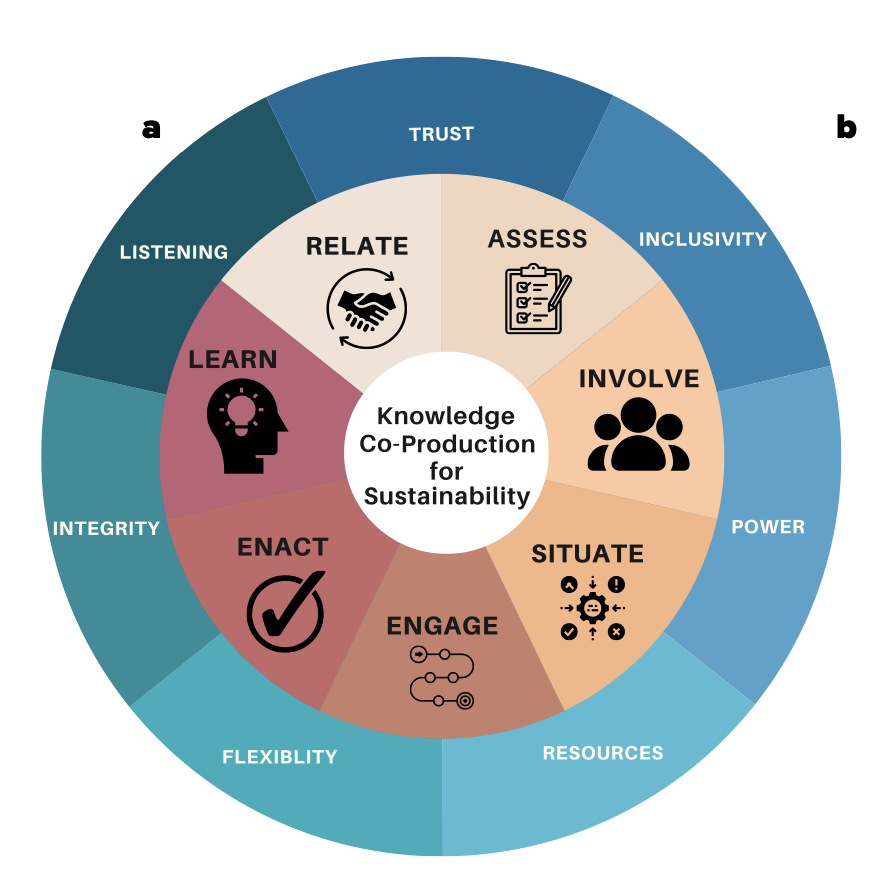
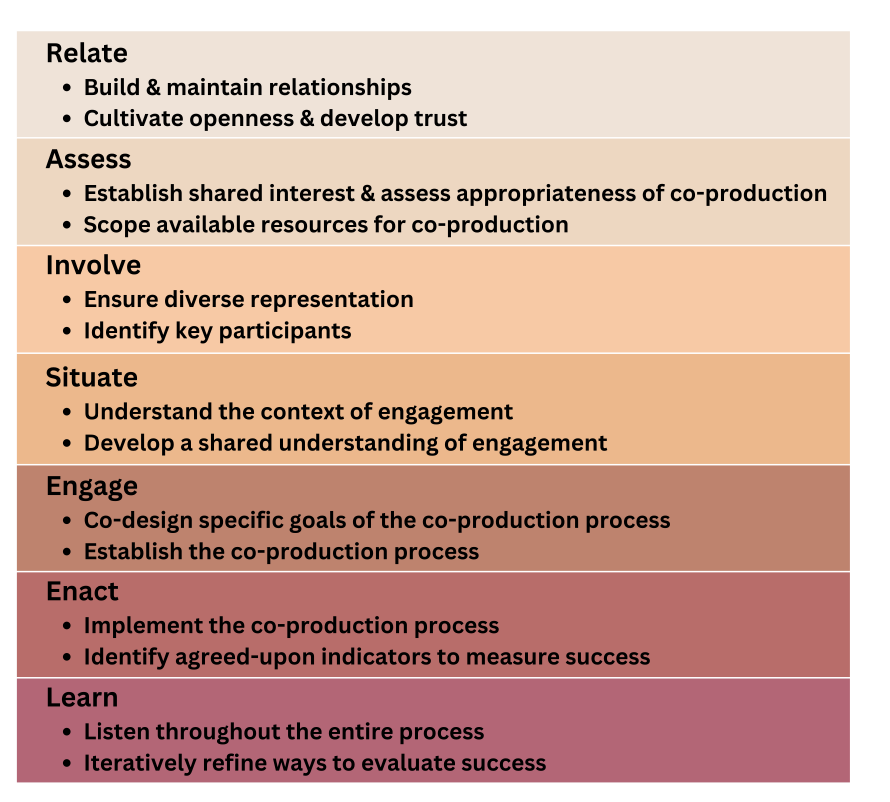

SPECIAL ISSUE ON SEA GRANT: SCIENCE SERVING AMERICA’S COASTLINES AND PEOPLE
Oceanography | Vol. 37, No. 1 | March 2024
By Erin V. Satterthwaite, Liz McQuain, Amalia A. Almada, Jessica M. Rudnick, Alyson L. Eberhardt, Angee N. Doerr, Ryan J. O’Connor, Nicole Wright, Rebecca A. Briggs, Matthew J. Robbins, Carolina Bastidas, Eric L. Sparks, Kristen A. Goodrich, and Wells J. Costello
This paper synthesizes the existing literature across multiple disciplines to present a novel framework and actionable strategies for effective knowledge co-production in sustainability. The wheel of knowledge co-production, the conceptual framework presented, emphasizes the importance of iterative phases of building relationships, assessing available resources, involving diverse participants, considering context, and working together with partners to design mutually beneficial and respectful processes and outcomes.
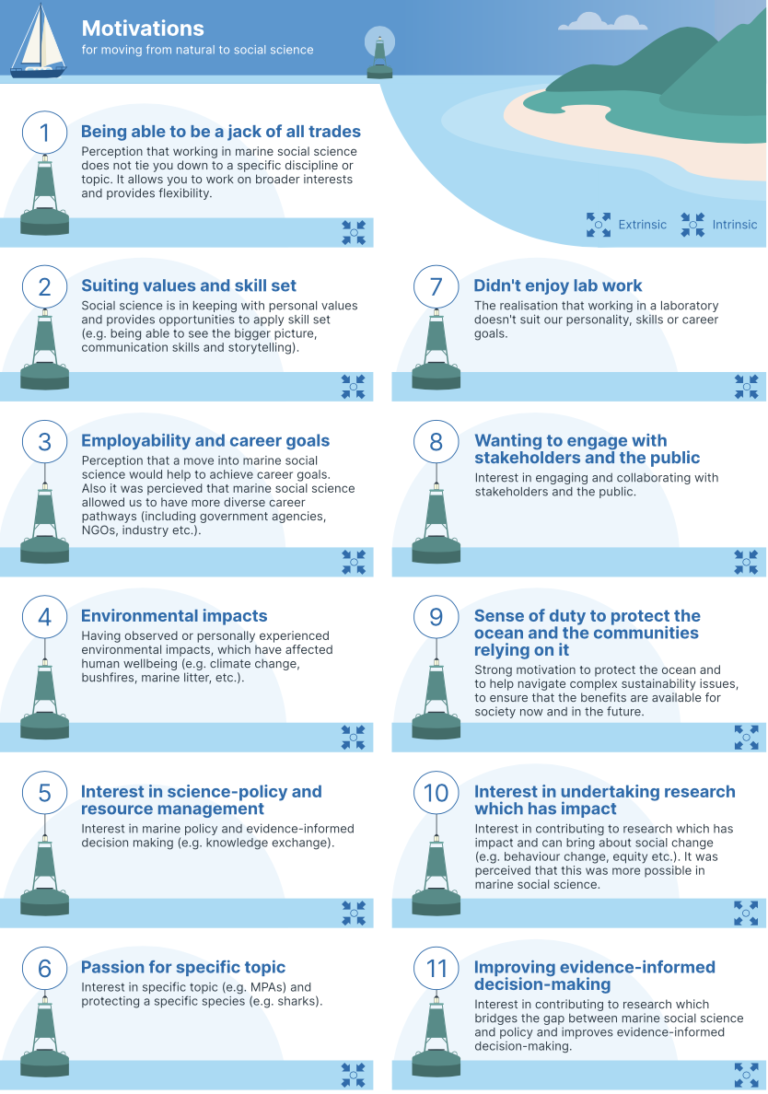
Shellock, R. J., Cvitanovic, C., Badullovich, N., Catto, D., DelBene, J. A., Duggan, J., D. B. Karcher, A. Ostwald. & Tuohy, P. (2022). Crossing disciplinary boundaries: motivations, challenges, and enablers for early career marine researchers moving from natural to social sciences. ICES Journal of Marine Science. DOI:10.1093/icesjms/fsac218
Recent years have seen increasing calls to better document and understand the human dimensions of the marine and coastal environment and to incorporate this knowledge into decision-making. Human dimensions of the marine and coastal environment are best investigated through the application of marine social science. Individuals within marine social science are not solely “pure” social scientists, but rather are a diverse and interdisciplinary community, including many who have moved from the natural sciences to pursue a career in marine social science. This is particularly the case for early career researchers, with many moving from natural to social science earlier in their academic careers than their predecessors, and thus developing stronger interdisciplinary skills than previous generations of social scientists. In this perspective, we draw on our experiences, highlighting our main motivations for moving from natural to social science, the barriers we have faced and our top tips for early career researchers faced with similar opportunities and challenges. The ten tips include: “Work with like-minded researchers,” “Learn from and be inspired by academic heroes,” “Learn about and engage with research philosophy, positionality and reflexivity,” “Value your own skillset and perspective,” and “Be patient and kind to yourself.”
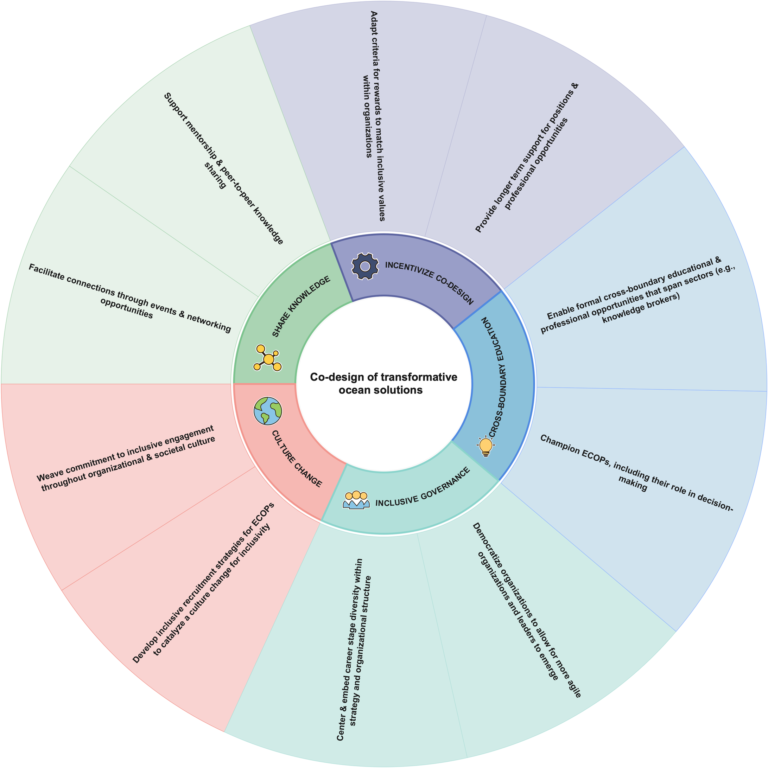
Satterthwaite EV, Komyakova V, Erazo NG, Gammage L, Juma GA, Kelly R, et al. (2022) Five actionable pillars to engage the next generation of leaders in the co-design of transformative ocean solutions. PLoS Biol 20(10): e3001832. https://doi.org/10.1371/journal. pbio.3001832
Solutions to complex and unprecedented global challenges are urgently needed. Overcom- ing these challenges requires input and innovative solutions from all experts, including Early Career Ocean Professionals (ECOPs). To achieve diverse inclusion from ECOPs, funda- mental changes must occur at all levels—from individuals to organizations. Drawing on insights from across the globe, we propose 5 actionable pillars that support the engagement of ECOPs in co-design processes that address ocean sustainability: sharing knowledge through networks and mentorship, providing cross-boundary training and opportunities, incentivizing and celebrating knowledge co-design, creating inclusive and participatory gov- ernance structures, and catalyzing culture change for inclusivity. Foundational to all actions are the cross-cutting principles of justice, equity, diversity, and inclusivity. In addition, the pil- lars are cross-boundary in nature, including collaboration and innovation across sectors, disciplines, regions, generations, and backgrounds. Together, these recommendations pro- vide an actionable and iterative path toward inclusive engagement and intergenerational exchange that can develop ocean solutions for a sustainable future.
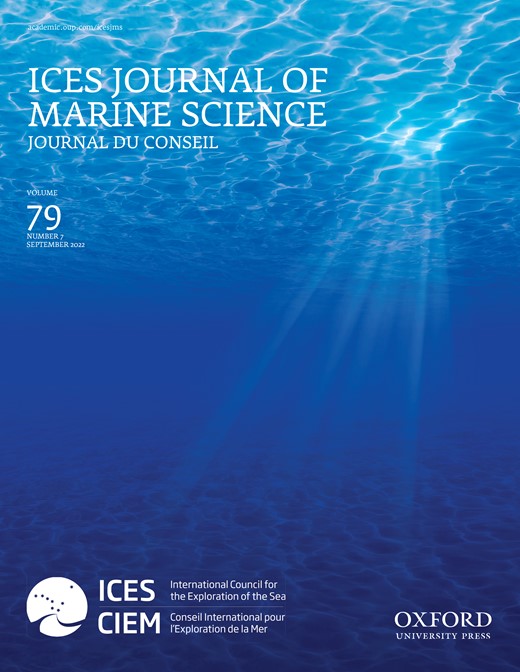
Schadeberg, Amanda, et al. “Productivity, pressure, and new perspectives: impacts of the COVID-19 pandemic on marine early-career researchers.” ICES Journal of Marine Science (2022).
The worldwide disruption caused by the beginning of the COVID-19 pandemic has dramatically impacted the activities of marine scientists working towards the goals of the UN Ocean Decade. As in other disciplines, marine early-career researchers (ECRs) are essential contributors to the development of novel and innovative science. Based on a survey of 322 of our peers, we show that the pandemic negatively impacted marine ECRs in ways that further exacerbate existing structural challenges such as social isolation, job insecurity, and short-term contracts, competitive funding, and work pressure. Furthermore, we find that the success and wellbeing of marine ECRs depends heavily on networking opportunities, gaining practical experience, collecting data, and producing publications, all of which were disrupted by the pandemic. Our analysis shows that those in the earliest stages of their careers feel most vulnerable to long-term career disadvantage as a result of the pandemic. This paper contributes to the empirical body of work about the impacts of the pandemic on marine science and offers recommendations on how marine ECRs should be supported to achieve the UN Ocean Decade’s goal of producing “the science we need for the ocean we want”
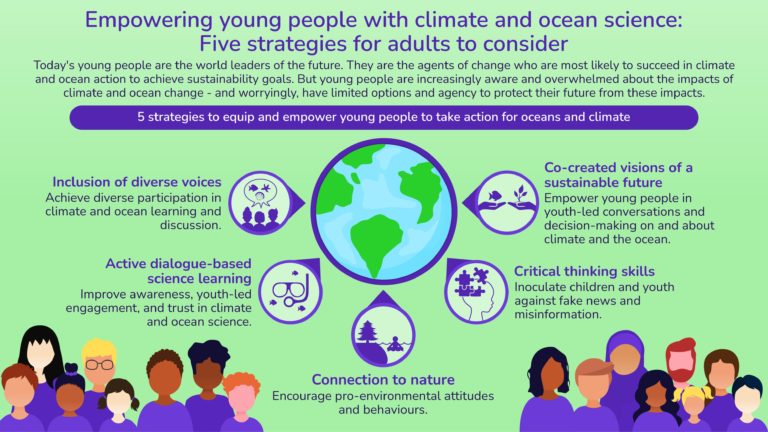
Kelly, Rachel, et al. “Empowering young people with climate and ocean science: Five strategies for adults to consider.” One Earth 5.8 (2022): 861-874. https://doi.org/10.1016/j.oneear.2022.07.007
Here, we present five actionable strategies to engage and empower young people with climate and ocean science in support of long-term sustainability: inclusion of diverse voices, active dialogue-based science learning, connection to nature, critical thinking skills, and co-created visions of a sustainable future. These strategies can help to strengthen young people’s engagement and agency to meet climate and ocean challenges. Together, the strategies can synergistically empower young people to have a say in shaping their sustainable future.
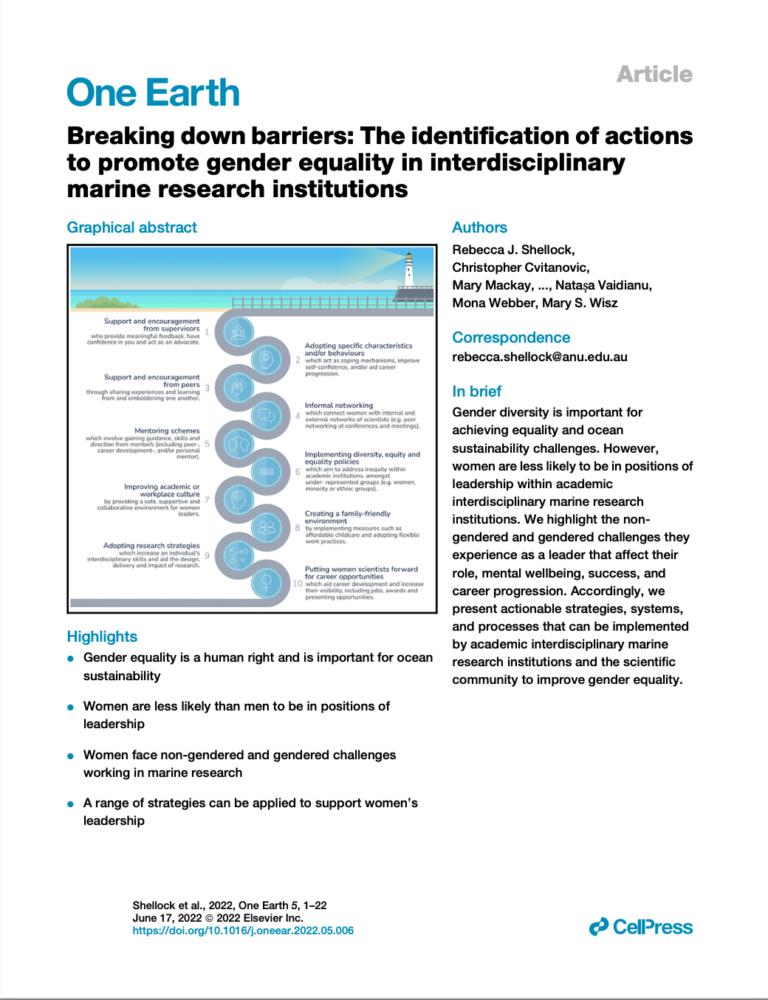
Shellock et al., 2022, One Earth 5, 1–22, June 17, 2022. https://doi.org/10.1016/j.oneear.2022.05.006
Interdisciplinary research is paramount to addressing ocean sustainability challenges in the 21st century. However, women leaders have been underrepresented in interdisciplinary marine research, and there is little guidance on how to achieve the conditions that will lead to an increased proportion of women scientists in positions of leadership. Here, we conduct in-depth qualitative research to explore the main barriers and en- ablers to women’s leadership in an academic interdisciplinary marine research context. We found that inter- disciplinarity can present unique and additional barriers to women leaders (e.g., complexity and lack of value attributed to interdisciplinary research) and are exacerbated by existing gender-specific issues that women experience (e.g., isolation and underrepresentation and stereotyping). Together these barriers overlap form- ing the ‘‘glass obstacle course’’—which is particularly challenging for women in minoritized groups. Here, we provide a list of concrete, ambitious, and actionable enablers that can promote and support women’s leader- ship in academic interdisciplinary marine research.
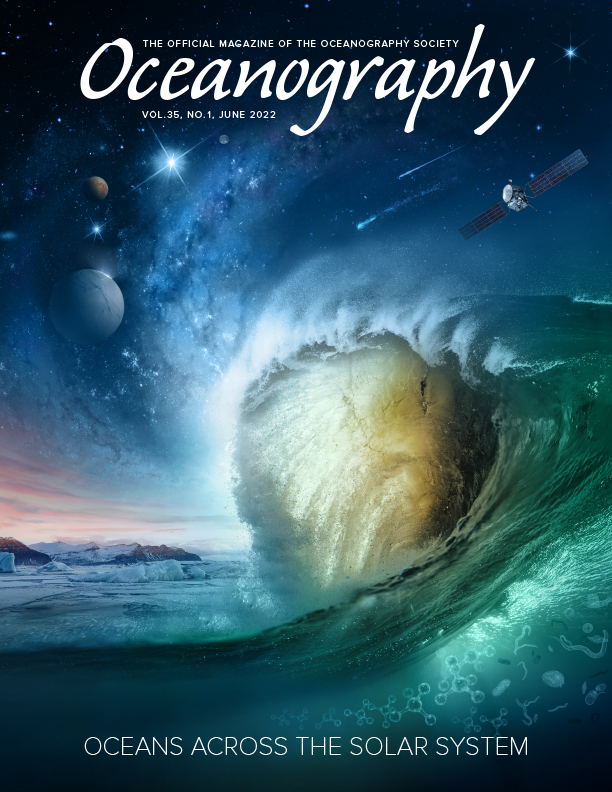
Giron-Nava, A., and H. Harden-Davies, 2021. Published online: February, 2022. Oceanography 35(1):76–80, DOI: https://doi.org/10.5670/oceanog.2021.402.
The year 2021 marked the beginning of the United Nations (UN) Decade of Ocean Science for Sustainable Development. The world now has fewer than 10 years to achieve the UN Sustainable Development Goals. In this article, we reflect on some of the challenges and opportunities this presents for Early Career Ocean Professionals (ECOPs) who will be instrumental in designing, delivering, and using ocean knowledge toward a more sustainable and equitable future. How can Ocean Decade programs and partnerships equip ECOPs with the necessary tools, skills, and opportunities to engage meaningfully with policy processes and to develop practical solutions for societal benefit? We propose some key questions for discussion among ocean scientists, ocean-dependent communities, and policymakers.
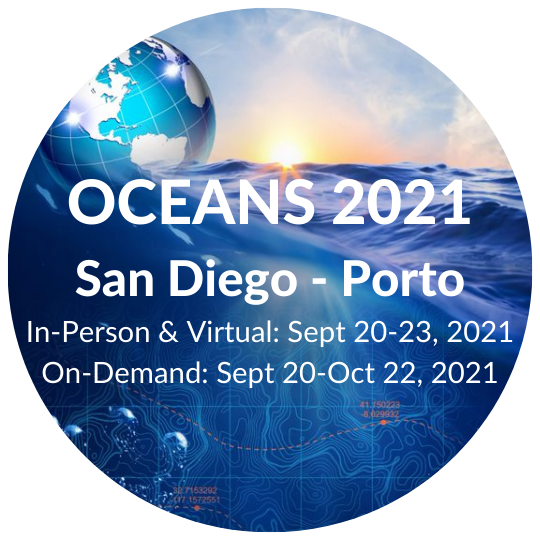
J. Van Stavel et al., “Towards an increase in Diversity, Equity and Inclusion in international ocean observing practices and initiatives,” OCEANS 2021: San Diego – Porto, 2021, pp. 1-6, https://doi: 10.23919/OCEANS44145.2021.9706081
We discuss how the (IOC-UNESCO) Ocean Best Practices System has implemented and is building on actions and solutions proposed by others to support the ocean observing community in increasing diversity, equity, and inclusivity. Our contribution highlights the need for self-assessment which can be transformed into action and foster the collaborative culture required for international ocean observing practices and initiatives. This urgent process aims to address historical problems that need immediate attention in to ensure progress in sustainable development and the advancement of ocean observing everywhere.
Share Your Scientific Papers with Us!
Fill out the form and share your papers that have been recently published with ECOPs:
